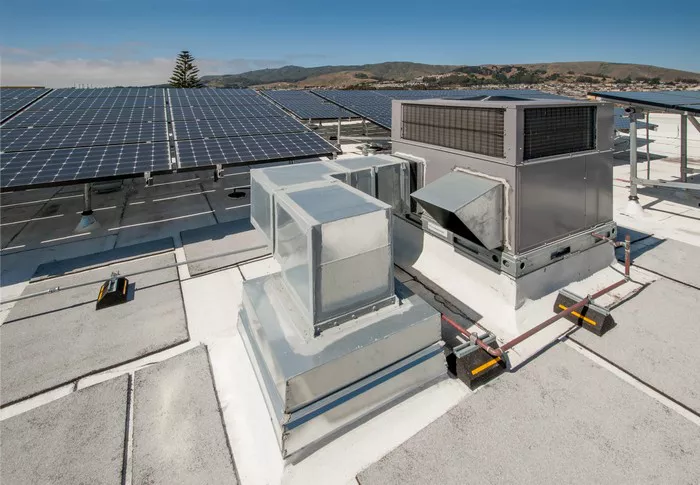New alloy technology is reshaping compressor valve design, boosting performance and cutting emissions in heating and cooling systems.
As global demand for energy-efficient heating and cooling systems accelerates, material innovation is emerging as a key enabler in reducing carbon emissions and improving system performance. Among the latest breakthroughs is Freeflex, a high-strength stainless steel alloy developed by Swedish materials technology company Alleima, now making inroads in next-generation compressor designs.
With buildings responsible for nearly 28% of global CO₂ emissions, much of it stemming from heating and cooling, the HVAC industry faces mounting pressure to deliver climate control solutions that meet both performance and environmental targets. Central to this challenge is a component often overlooked: the compressor valve.
These valves play a crucial role in regulating the energy flow within HVAC units, especially as systems are increasingly built to handle both heating and cooling functions year-round. The demands placed on these components—extreme pressure, temperature fluctuations, and repeated mechanical cycling—require materials with exceptional durability and precision.
Enter Freeflex, an advanced stainless steel alloy tailored for these challenges. Featuring elevated levels of carbon, chromium, and copper, Freeflex offers superior fatigue resistance and structural stability. This allows for the design of thinner, more efficient valves that respond faster, reduce mechanical resistance, and ultimately lower energy consumption.
“The superior fatigue and wear resistance of Freeflex allows for more aggressive valve design, which in turn supports more energy-efficient compressor operation,” said Remco Jongen, segment manager at Alleima.
One of the standout advantages of Freeflex is its ability to enable valve miniaturisation. Thanks to its optimized microstructure, manufacturers can produce thinner components with high dimensional control, improving both efficiency and noise performance. Thinner valves reduce energy use by requiring less force to operate and can significantly lower vibration-related noise—an increasingly important feature for residential and noise-sensitive applications.
Adoption and impact in the field
Although precise energy savings vary by compressor design, Freeflex is already proving its worth. The alloy—specifically Freeflex Core, one of two grades in the Freeflex family—has been adopted in several high-efficiency compressor models now in serial production. This real-world integration underscores Freeflex’s role in improving compressor performance and extending the operational lifespan of HVAC systems.
Its predecessor, Hiflex, remains a reliable material solution, but Freeflex represents a leap forward in meeting the evolving efficiency and durability requirements of today’s HVAC technologies.
Positioned for regulatory compliance
The timing of Freeflex’s emergence aligns with tightening regulations across global markets. The European Union and North America are both rolling out stricter eco-design standards aimed at increasing HVAC system efficiency, reducing refrigerant emissions, and encouraging equipment miniaturisation. While there are currently no dedicated material certifications for compressor valves, Freeflex has been engineered to support compliance with these broader mandates.
Collaboration at the core of innovation
Alleima’s development of Freeflex is backed by strategic partnerships with global compressor and valve manufacturers. These collaborations ensure the material is continually refined to match the needs of next-generation system designs and regulatory expectations. By fostering close R&D ties, Alleima helps translate material-level advances into real-world performance gains across the HVAC sector.
This convergence of material science, engineering, and sustainability goals is redefining HVAC design, especially in regions where heat pumps are replacing fossil-fuel-based heating systems. According to the International Energy Agency, global demand for air conditioning is projected to triple by 2050. Meeting this demand sustainably requires technologies that not only perform under pressure but do so quietly, efficiently, and with a reduced environmental footprint.
Freeflex is helping lead that charge, setting new benchmarks for compressor valve performance and offering a vital material solution for HVAC systems of the future.
Related topics:

